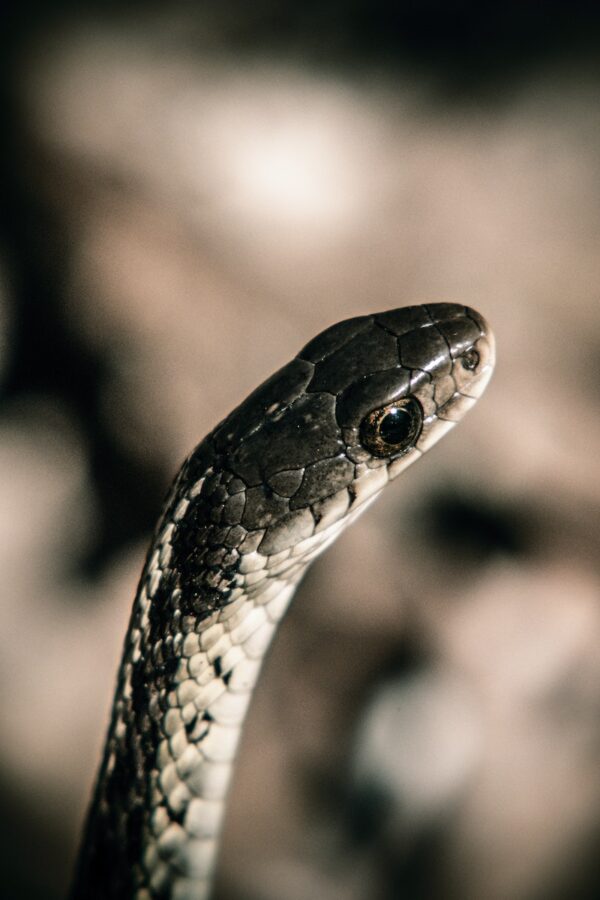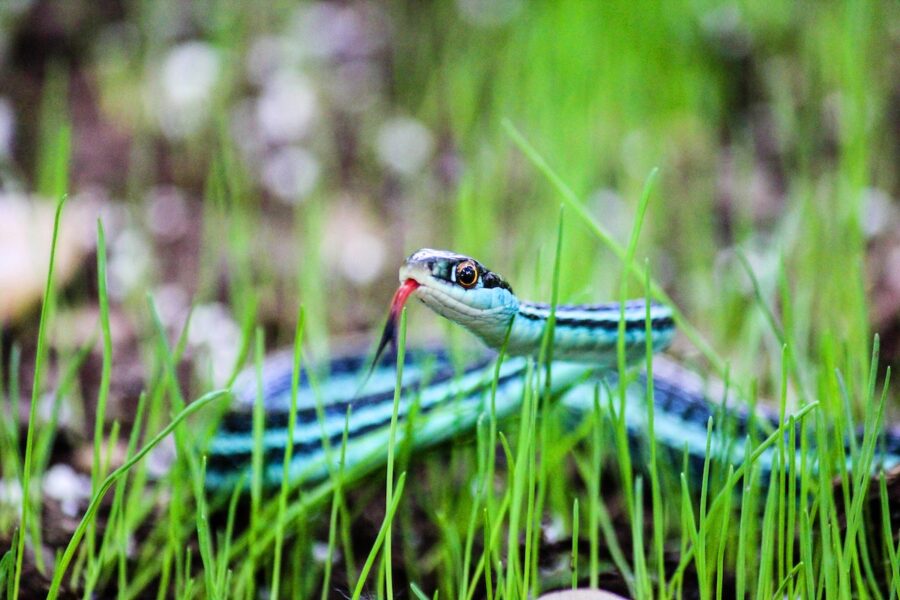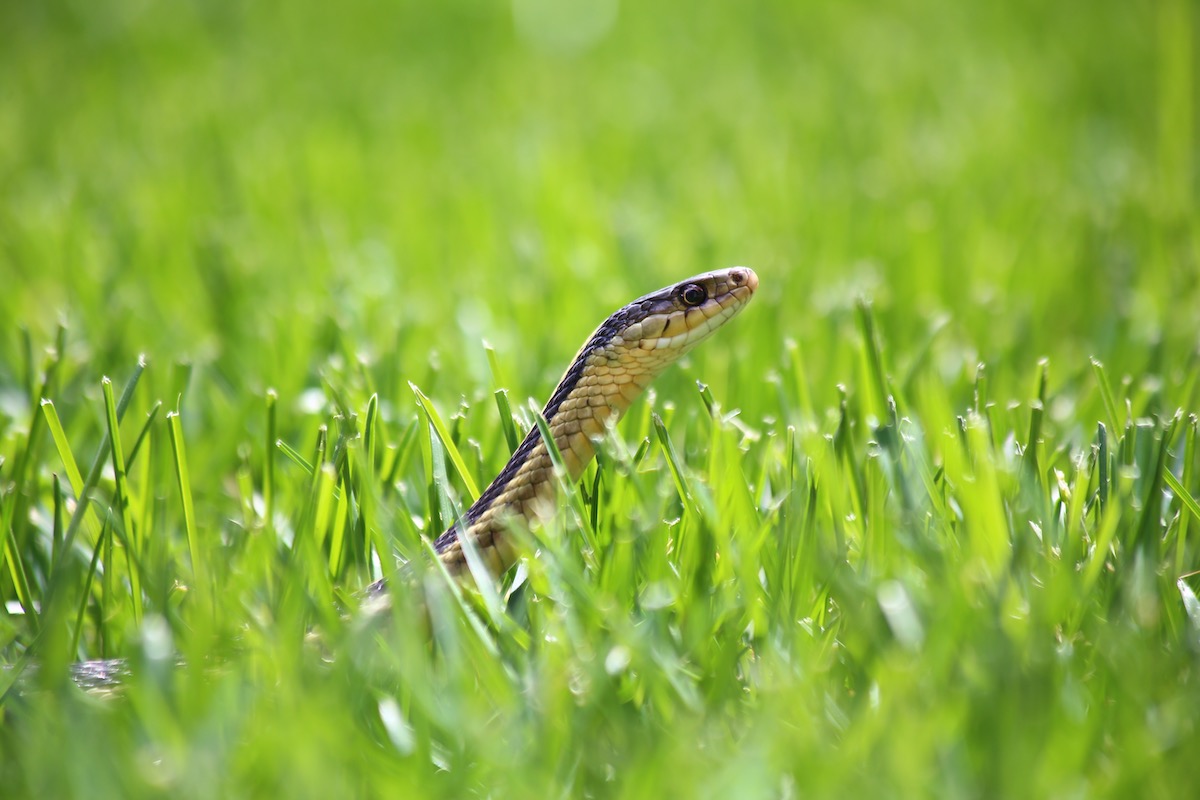Garden snakes, also known as garter snakes, are a popular pet for first-time reptile owners. That being said, they still need a varied diet and hands-on care to keep them healthy. If you are sure that you want one of these snakes or just want to learn more about how you can make your pet’s diet more interesting, then you are in the right place!
Table of Contents
Some Slithery Background
Garter snakes are one of the most common species of snake in North America. While some species contain a mild venom, a type of neurotoxin, it is widely believed not to be too harmful to humans. When bitten, a person might experience swelling and itching. Some species also hibernate during the colder months and all garter snakes bear live young.
What About Water?
Before we cover their diet, let’s first talk about their drinking habits. They do need fresh water available at all times, just like any other pet. A garter snake will appreciate a large, shallow dish filled with water so that they can drink and soak in the bowl.
The Garter Snake Menu

These guys will definitely not think that you are funny when you offer them fresh fruit and veggies! That’s right, you have a meat-eating pet on your hands. A tiny little hunter. As pets, they will readily grab something if you offer food by hand. Are you ready to serve your reptilian master? Then let’s learn what they love to munch on.
Pro tip: Always make sure that you feed your snake chunks that are easy to swallow. Rather feed them several undersized portions than risk your pet choking on a single large piece.
1. Earthworms
Yes, these readily available worms are a hot favorite. You can get them at a bait shop or dig them up in the garden. As with all your snake’s food, make sure that the worms are clean of dirt and debris before you turn them into lunch.
2. Snails
Garter snakes will eat them whole but once again, never feed snails that are too large for your pet. In case you are wondering, yes, the snakes like to eat snails live so if this aspect of owning a garter makes you uncomfortable, then there is no shame in reconsidering or perhaps opting for a different type of reptile.
3. Grasshoppers
These bouncy creatures seem to be a favorite of some species of garter snakes. Your own pet may or may not like grasshoppers. Another drawback is that they are not as readily available as other food sources. However, they are more nutritional than earthworms.
4. Fish
Owners of garter snakes often feed their pets live fish. The wriggling attracts the snake’s attention but be warned, some garters absolutely refuse to eat fish! But if yours seem to like a bite of the ocean, the best choices include guppies, platies, tilapia and mosquito fish.
However, not all aquarium fish are safe for this type of pet. One fish you must never feed your garter snake is the goldfish. They contain an enzyme that causes a vitamin B1 deficiency in snakes.
5. Mice
This is where things get a little too much for those who are considering getting a snake as a pet. Most snakes do consume mice and often eat them while the mouse is still alive.
With garter snakes, owners prefer to give “pinky mice” which, essentially, is newly born mouse pups. The safest way is to feed the mice when they are dead and frozen (you can buy them that way). Once again, if this makes you unhappy, then there are other reptiles that certainly make excellent pets and they do not require prey.
Unfortunately, mice constitute one of the best and complete nutritional meals that you can feed a garter snake.
FAQ

In nature, garter snakes can and do eat these amphibians. However, as a pet owner, it might be best to steer clear of this popular food choice. In some areas, frogs and toads are protected by law, poisonous or carry parasites that can harm your pet.
No. The rule with earthworms is that they make a good snack and a fine addition to a varied diet. But on their own, they do not have all the minerals and compounds that your snake needs to stay healthy and can even cause your pet to experience loose stool – among other problems.
Unfortunately, not. These earthworms, which are commonly sold for compost heaps and as trout bait, are reportedly toxic to garter snakes.
Yes, there are commercial diets available for these snakes and some of them are quite good. The main gripe with these products is that they are quite expensive. But at the end of the day, keeping a reptile is a pricey hobby, so the price of food should be factored in before you buy a snake.

